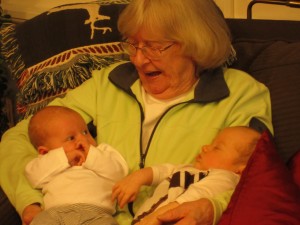Imagine fleeing your home with children because…
by Robert Fontana
…you have learned that local thugs and gang members are targeting young girls in your neighborhood for kidnapping. The girls are given over to gang members as “wives.” Imagine also that you know from previous experience that the local police and government officials are powerless to do anything about it. What would you do? What would you do if you were poor and did not have political or family connections with resources to help you?
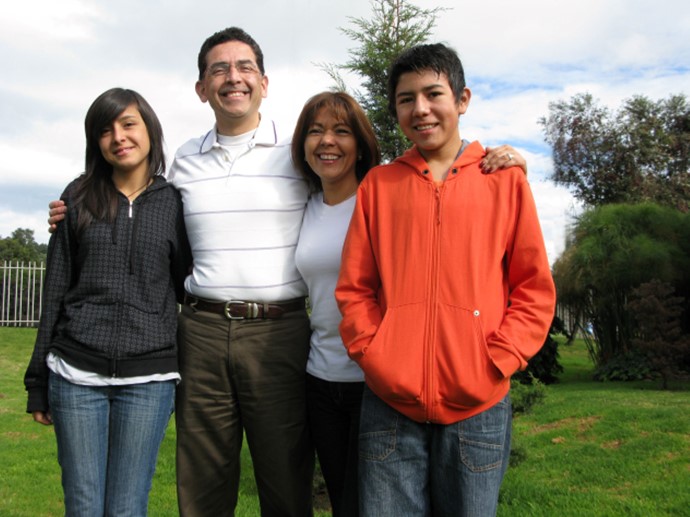
You would probably do what Juana and Jose (not their real names) from Columbia did. With their two children, a teen and a young child, they set out on the long walk to the United States, seeking asylum and a new, safe life in the U.S. You might very well do this same thing because you’d have heard through the migrant grapevine that American law states that any person who arrives onto U.S. soil and requests asylum has the right to a hearing before an immigration judge.
Any alien who is physically present in the United States or who arrives in the United States (whether or not at a designated port of arrival and including an alien who is brought to the United States after having been interdicted in international or United States waters), irrespective of such alien’s status, may apply for asylum in accordance with this section or, where applicable, section 1225(b) of this title. 8 U.S. Code § 1158 – Asylum (https://www.law.cornell.edu/uscode/text/8/1158)
Juana and Jose began their long pilgrimage in early December, 2023. Almost immediately they faced the perils of crossing the “Darien Gap,” which according to Wikipedia is “a geographic region that connects the American continents, stretching across southern Panama‘s Darién Province and the northern portion of Colombia‘s Chocó Department. Consisting of a large drainage basin, dense rainforest, and mountains, it is known for its remoteness, difficult terrain, and extreme environment, with a reputation as one of the most inhospitable regions in the world.”
The Darien Gap is not only physically challenging to cross because of its difficult terrain, it is also dangerous to cross because of snakes and other wild animals and because of the presence of gangs that prey on migrants.
Juana reported that over the three days it took them to cross through the Darien Gap they were always wet because of rainfall and having to cross rivers and streams. They were not alone. They met other people fleeing their homelands and heading towards the United States. They made it to Nicaragua, then Guatemala, and arrived in Mexico in February. They were assisted at times by churches with food and water. At other times they had to work menial jobs to earn money to buy food or a bus ticket. There were many days with little or no food or water. They slept on the side of the road, in parks, church yards, and occasionally in a hotel where they could also shower.
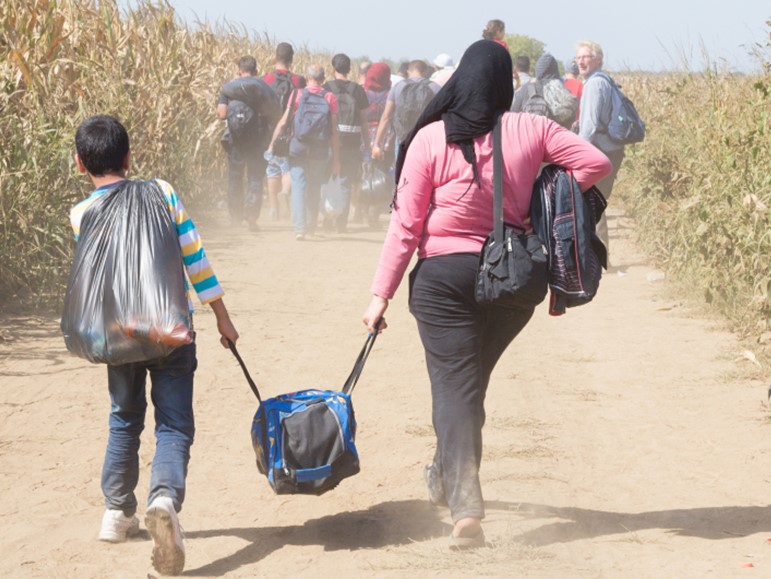
Twice, after traveling to Northern Mexico, Mexican immigration officers picked them up and returned them to southern Mexico near the Guatemalan border. Undaunted, knowing what waited for them back in Columbia, they both times began the trek north again. They did a variety of jobs to earn money to buy bus fares: washing dishes, cleaning houses and yards, waiting on tables. They were occasionally robbed but, thank God, never physically injured, though they witnessed other migrants being attacked and physically harmed.
Arriving in Mexico City a second time, they tried to apply for asylum online through a program set up by the Biden administration. They tried this online application repeatedly over a one-month period without hearing from any immigration official. Finally, Jose decided to hop on a train north to the Mexico – U.S. border, thinking he would find work in the U.S. and send money back to Juana and the children. Juana worked, earned money for bus fare, and was finally able to travel with her two children to Juarez, Mexico, across the border from El Paso, TX, in May.
She crossed into the U.S. at an immigration checkpoint and asked for asylum. Immigration officers took her and the children into custody. After conducting a background check, immigration released Juana and family to Annunciation House, a Catholic shelter system for migrants directed by Ruben Garcia. Mom and children were granted approval to have their asylum claim heard.
Lori and I arrived in El Paso in June to volunteer at Annunciation House where we met Juana and children. The family later learned that Jose was in a detention center in Houston and would probably be deported. Lori worked with the family to get immunizations and other medical care, and I worked with them to learn some English. And we all worked together with all the guests at the shelter to do laundry, mopping and cleaning, meal preparation, and dishwashing.
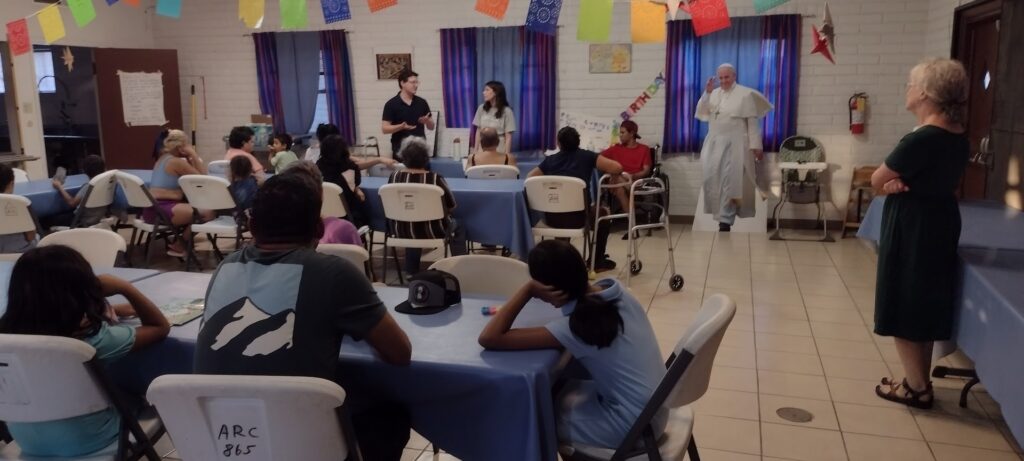
Juana, however, had a problem. Most families asking for asylum in the U.S. have a contact in the country, a family member or friend, who will host them as they wait for their immigration hearing. Juana’s contact had fallen through. When we left in early August, she and family were essentially stuck at the El Paso shelter. After a few more months passed, the shelter director asked if we would consider hosting the family here in Seattle. Lo and behold, our parish had a connection for a very vital need: a small studio apartment for them.
Juana and family arrived in Seattle the first week of December. Two of our daughters and a few parish families are bi-lingual, and that’s been such a blessing – to connect Juana with some Spanish-speaking families. Lori and I lean heavily on Google Translate, which works surprisingly well, though it’s slow-going. The younger child will begin Pre-K at the parish school; the teen will take the ELL course at the community college in the spring. We’ve found an English language tutor for Mom and teen. Lori is searching for a pro-bono immigration lawyer.
No one would make the journey that Juana and her family made unless the threat to their lives was very real. With honest reflection, I think you or I would have done the same thing. Please remember this family, and all migrants, in your prayers. We’ll keep you updated on their progress.
A 5 minute Christmas Homily
Dear Friends, the Christmas homily ought to be short! The meaning of the day is made abundantly clear in the carols sung, the readings proclaimed, the liturgy prayed, and the festivities in the home. The homilist need only add an exclamation point to what the Christmas liturgy shouts out with joy, that the beloved son of God was born of Mary! Here’s my Five-Minute Christmas Homily for 2022.

Robert: Merry Christmas, everyone. [Robert sings.] It’s beginning to look a lot like Christmas, everywhere you go. People are going to pray. They’re listening every day, to stories from the Bible all aglow.
Oh…wait a minute. Wrong words…how does the song go? (sing with me if you know it):
It’s beginning to look a lot like Christmas, everywhere you go. Take a look at the five and ten, it’s glistening once again with candy canes and silver lanes aglow. It’s beginning to look a lot like Christmas, toys in every store. But the prettiest sight to see is the holly that will be on your own front door.
Wow. The writer of that Christmas song sure got it wrong. Sure, candy canes and silver lanes aglow are fun, and buying toys in every store keeps the economy going but, are these the real signs of Christmas? Everybody, shout, “NO!”
All: NO!
Robert: We just need to look to the beautiful people in the Christmas story for the true signs that indicate Christmas is here. But I need your help in this Gospel reflection. When I raise my hand, would you shout out, “It’s beginning to look like Christmas!” Let’s practice. [Robert raises his hand.]
All: IT’S BEGINNING TO LOOK A LOT LIKE CHRISTMAS!
Robert: When you and I, like Mary, open our hearts to the love of God, when we say, “Yes!” to following his will for our lives, then…[ Robert raises his hand.]
All: IT’S BEGINNING TO LOOK A LOT LIKE CHRISTMAS!
Robert: When you and I, like Joseph, have the courage to stand up for what is right and protect the innocent, from babies to migrants to caring for our beautiful earth, then… [Robert raises his hand.]
All: IT’S BEGINNING TO LOOK A LOT LIKE CHRISTMAS!
Robert: When you and I who are struggling in marriage and family, love one another like Mary and Joseph, forgive each other any hurt we may have caused, and work to restore friendship and affection, then…
All: IT’S BEGINNING TO LOOK A LOT LIKE CHRISTMAS!
Robert: When you and I, like the Magi, can discern when the political powers are trying to manipulate us, and we do not play their games but instead listen to the Holy Spirit speaking to our hearts, thereby thwarting their evil machinations, then… [Robert raises his hand.]
All: IT’S BEGINNING TO LOOK A LOT LIKE CHRISTMAS!
Robert: And when you and I, like the angels in the sky, gather for worship, lift our voices to heaven to sing glory to God in the highest, listen to the Word of God, and receive the Eucharist, then… [Robert raises his hand.]
All: IT’S BEGINNING TO LOOK A LOT LIKE CHRISTMAS!
Robert: And lastly, when we make room in the “inn of our hearts” and walk with the shepherds of the world, with those hard-working laborers, with families who struggle to make ends meet; when we accompany them to Bethlehem to be with the Christ Child and Mary and Joseph, where there is neither rich nor poor, slave nor free, woman nor man, but we are all one in Christ, then… [ Robert raises his hand.]
All: IT’S BEGINNING TO LOOK A LOT LIKE CHRISTMAS!

Robert: Decorations are nice; gifts are wonderful to give and receive. But it’s truly Christmas when our joy, celebrations and sharing of gifts spring from the profound knowledge that we are deeply loved by God through the gift of Jesus and we share that love with all we meet. Knowing this, we can live Christmas every day of the year. So, friends, let’s show the world what Christmas really looks like! Because when we do, all people will know that… [Robert raises his hand.]
All: IT’S BEGINNING TO LOOK A LOT LIKE CHRISTMAS!
An Advent Meditation by Mother Teresa
(Given at the first World Youth Jubilee in Rome, 1983)
Who do you say I am? (Matthew 16:15)

You are God. You are God from God. You are begotten, not made. You are One in Substance with the Father. You are the Son of the living God. You are the Second Person of the Blessed Trinity. You are One with the Father. You are in the Father from the beginning. All things were made by you and the Father. You are the Beloved Son in whom the Father is well pleased. You are the Son of Mary, conceived by the Holy Spirit in the womb of Mary.
You were born in Bethlehem. You were wrapped in swaddling clothes by Mary and put in the manger full of straw. You were kept warm by the breath of the donkey who carried your Mother with you in her womb. You are the Son of Joseph, the carpenter as known by the people of Nazareth. You are an ordinary man without much learning as judged by the learned people of Israel.
Who is Jesus to me?
Jesus is the Word made Flesh. Jesus is the Bread of Life. Jesus is the Victim offered for our sins on the Cross. Jesus is the Sacrifice offered at the Holy Mass for the sins of the world and mine.
Jesus is the Word — to be spoken.
Jesus is the Truth — to be told.
Jesus is the Light — to be lit.
Jesus is the Life — to be lived.
Jesus is the Love — to be loved.
Jesus is the Joy — to be shared.
Jesus is the Peace — to be given.
Jesus is the Bread of Life — to be eaten.
Jesus is the Hungry — to be fed.
Jesus is the Thirsty — to be satiated.
Jesus is the Naked — to be clothed.
Jesus is the Homeless — to be taken in.
Jesus is the Sick — to be healed.
Jesus is the Lonely — to be loved.
Jesus is the Unwanted — to be wanted.
Jesus is the Leper — to wash his wounds.
Jesus is the Beggar — to give him a smile.
Jesus is the Drunkard — to listen to him.
Jesus is the Mentally Ill — to protect him.
Jesus is the Little One — to embrace him.
Jesus is the Blind — to lead him.
Jesus is the Dumb — to speak to him.
Jesus is the Crippled — to walk with him.
Jesus is the Drug Addict — to befriend him.
Jesus is the Prostitute — to remove her from danger and befriend her.
Jesus is the Prisoner — to be visited.
Jesus is the Old — to be served.
To me
Jesus is my God. Jesus is my Spouse. Jesus is my Life. Jesus is my All in All. Jesus is my Everything. Jesus, I love You with my whole heart, with my whole being. I have given Him all, even my sins and He has espoused me to Himself in tenderness and love.
Now and for life I am the Spouse of my Crucified. Spouse. Amen.
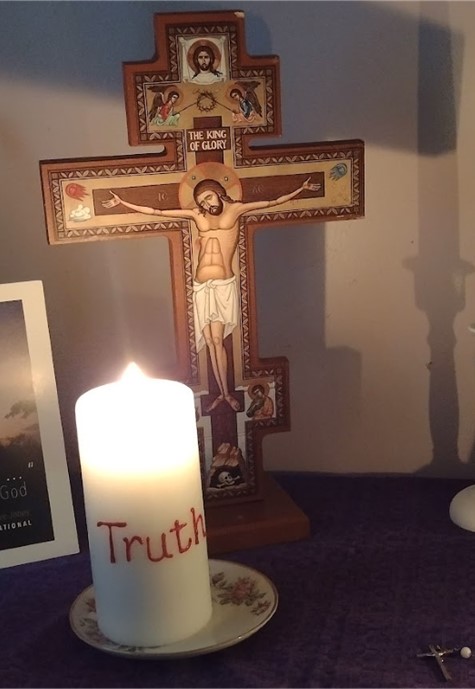
Is it Rocky vs Apollo Creed, David vs Goliath? No it’s…
By Robert Fontana

Yes, ladies and gentleman, the battle of the century is upon us (as it is every year). In one corner, dressed in red, sporting a white beard, wearing a night cap, and holding a sign that reads “Shop at Macy’s,” is COMMERCIAL CLAUS, or as popularly known, SANTA.

In the other corner, wearing a priestly stole, also sporting a white beard, and carrying gifts for the poor in one hand and the shepherds staff in the other, is St. Nicholas!

LET THE RUMBLE BEGIN! It is being fought in your heart and mine. Commercial Claus is backed by the trillion dollar commercial interests from Amazon to Walmart. St. Nicholas is backed by Jesus, the carpenter from Galilee, Francis and Clare from Assisi, disciples of Jesus today, and all men and women of good will who want children to know that they are loved for who they are and not for what they possess.
December 6 is the Feast of St. Nicholas, Bishop of Myra (in modern day Turkey). He had a reputation for secretly giving gifts to people in need, which led to the rise among pious Christians of the figure of Santa Claus (Sinterklaas (Dutch: [ˌsɪntərˈklaːs]) or Sint-Nicolaas – https://en.wikipedia.org/wiki/Saint_Nicholas). Sadly, as we all know, the commercial interest of secular culture have co-opted Santa Claus for its own purpose and few people know of the saintly figure behind the secular Santa (which, ironically, means “Holy.”).
Lori and I decided when our children were small to make the Feast of St. Nicholas a special day for them so that they would understand the Christian figure behind the Santa Claus story. We are continuing that custom with the grandchildren. On St. Nicholas Day morning, they will be opening their Christmas stockings, each containing a book, a candy treat, and an orange. (Here’s a you tube link for the story of St. Nicholas for children: https://www.youtube.com/watch?v=gfsGFHbCPCM)
Here’s a reflection on the difference between St. Nicholas and Santa Claus, followed by a prayer service that families (with or without children) or friends can do to honor St. Nicholas, disciple of Jesus, and friend of the poor.
- Santa wants your credit card; Nicholas wants your heart.
- Santa will turn you into a consumer; Nicholas will help you be a servant.
- Santa is a whimsical tale of a fat old elf who gives toys to boys and girls who have been good; St. Nicholas helped children escape from poverty and slavery.
- Santa reminds us to give presents; Nicholas reminds us to give ourselves.
- Santa is controlled by the department store; Nicholas was led by the Spirit.
- Santa is a man dressed in a costume; Nicholas was a Bishop who cared for his people.
- Santa reminds us to follow the Christmas sales; Nicholas reminds us to follow Jesus.
- Santa promises us happiness through gift-giving; Nicholas reminds us that happiness is the fruit of a faithful life.
- Santa is a fun story to read to children at Christmas Eve; Nicholas was a man of great compassion who sold his possessions and gave the money to the poor so that he could do God’s will in perfect freedom.
- Santa has nothing to do with Jesus the God-Man whose birth is celebrated on Christmas Day. Nicholas’ life only makes sense because of his love and commitment to Jesus the God-Man whose birth is celebrated on Christmas Day.
A Prayer Service for the Feast of St. Nicholas, Adapted by Robert Fontana from a prayer service by Thomas G. Simons from the St. Nicholas Center.
Call To Worship
Leader: Praise God for St. Nicholas!
Children: Yea St. Nicholas!
Leader: The Spirit of the Lord was upon him.
Children: Yea St. Nicholas!
Leader: Loving God, St. Nicholas loved Jesus, and because he loved Jesus he loved children and the poor. We honor his memory today and in doing so hope to imitate his kindness and love.
Children: St. Nicholas, pray for us. Amen!
Word Service – 1 Peter 5.1–4
The following summary of the life of St. Nicholas may be read and discussed.
St. Nicholas was born to Christian parents. Legends recount the story of Nicholas’ baptism when his parents brought him to the sacred fount; he leapt from his mother’s arms into the Baptismal waters. After the death of his parents, he gave away his inheritance to the poor of Myra, and dedicated himself to serve his people first as a priest and later as a bishop.
Bishop Nicholas preached the Gospel in a Roman culture still dominated by Greek and Roman religious customs and moral behavior. He organized Churched, taught the Catholic faith, and invited non-Christians to join the community of faith. He is most remembered as a helper to the poor and to children. Once Bishop Nicholas heard that a father was struggling to feed his three daughters. He did not have the money for a marriage dowry, and was considering selling them off into slavery so they would at least have something to eat. On three occasions, Bishop Nicholas threw a bag of gold through the window into the room of the sleeping father. His daughters soon were married. Later the father came to Nicholas, fell at his feet and said, “Nicholas, you are my helper.”
This story and his many other works of charity led to the tradition of giving presents on the Feast of St. Nicholas and at Christmas. The name Santa Claus, in fact, evolved from his name.
Bishop Nicholas proclaimed the Gospel, baptized new Christians, feed the hungry and poor, and taught the truths of Christianity. He died at Myra in 350 A.D. His popularity, already great, increased when his bones were brought to Italy in 1087. Both the Eastern and Western churches honor him. St. Nicholas is the patron saint of Russia, Greece, and Sicily. He is regarded as the special patron of children. His feast is day is December 6.
If you can’t be like mother Teresa, be like Paula Mitchell
by Lori Fontana
I want to tell you about a very special person, though she may not appear special. She’s not rich or famous. You won’t read about her in the news. If you walked by her on the street, you probably wouldn’t notice her. Her hair is white; her step is slow; her hearing is failing; her hands are worn and sometimes she needs a hand to help open a jar.
But she is a beautiful woman; and she is a saint. “How so?” you might ask.
Well, I know that every day she is the hands and feet, the heart and voice of Jesus for the people with whom she lives. I follow her through the halls of her assisted living home and the adjoining nursing care home, through the dining hall, the chapel, and across the courtyard patio. Everywhere she goes, she greets each person she sees. She smiles and says each person’s name, reaching out to pat a hand, caress a shoulder. She inquires about a family member or what was served for lunch or an upcoming outing. She always introduces me, and as I greet her friends, she tells me an interesting fact or talent about each one.
The people she greets may be seated, bent over in a chair, laboriously pushing a walker, painstakingly guiding a wheelchair, or gallantly shuffling along. Always, they beam in response to her greeting, her inquiries, her gentle touch. There are some who grasp my arm to pull me closer and tell me how welcoming she is, how she helped when they first arrived, how she found a lost item for them, brought a meal to their room, refilled their teacup, showed such care for them.
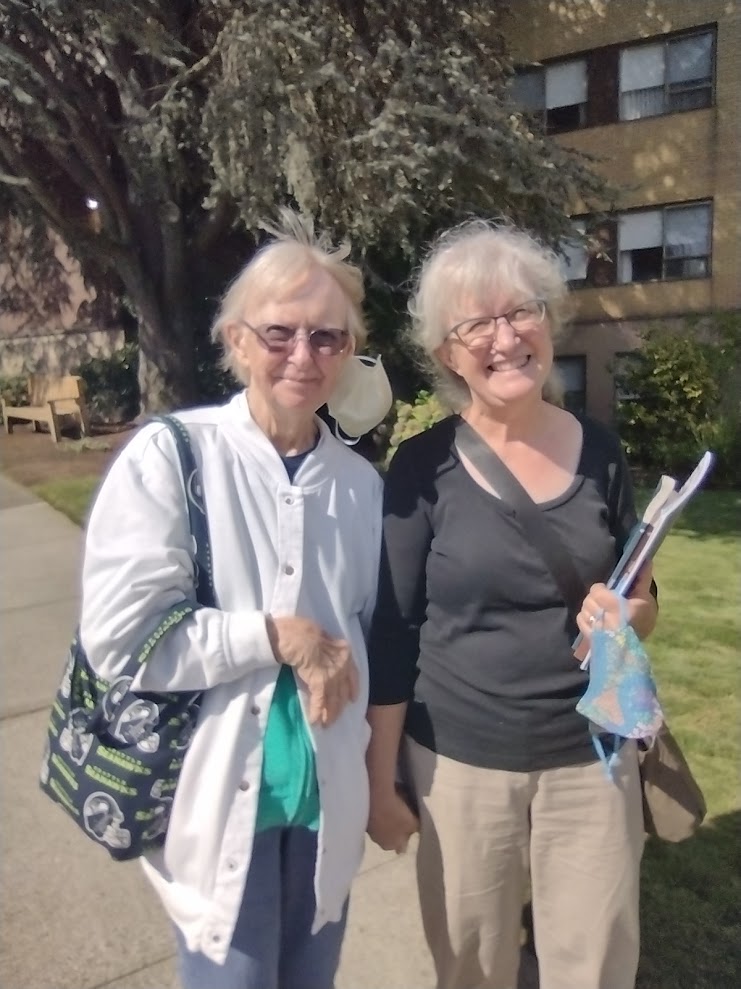
This special lady is my mom, Paula. She’s an ordinary woman in ordinary circumstances. But she has made some simple yet profound choices to live her life in an extraordinary way—the way of sainthood. St. Therese of Lisieux extols the “Little Way” of loving and following Jesus. St. Teresa of Avila knew that most of us make our journey to God in modest, often obscure ways of simply loving God and neighbor. One of her well-known prayers illustrates our common call to sainthood along a humble path:
“Christ has no body now, but yours.
No hands, no feet on earth, but yours.
Yours are the eyes through which Christ looks compassion into the world.
Yours are the feet with which Christ walks to do good.
Yours are the hands with which Christ blesses the world.”
Our vocation as Christians calls each of us to be Christ for others, wherever we find ourselves, in the providence of our everyday lives. Interestingly, my mom told me that she has changed since she moved into assisted living. She has become more outgoing, more willing to speak up, speak out, and speak to others, even folks she does not know. She confided, “I was not like this for a big part of my life. I was quiet and shy,” she said. “Not anymore. I feel confident and emboldened to speak to others, to help others, who are, perhaps, going through a hard time. I know what they are feeling, and I want to help.”
As her daughter, I know she has lived as Christ’s eyes, hands, and feet throughout her life, as a mom for many, many years in the family home. A good friend of ours pointed out at his mom’s funeral that Jesus is describing his mom (and I would say, most mothers) in Matthew’s last judgment scene:
“For I was hungry and you gave me food, I was thirsty and you gave me drink, a stranger and you welcomed me, naked and you clothed me, ill and you cared for me, in prison and you visited me.” Matt 25:35-36
This tells the story of our mothers. They have fed us, clothed us, cared for us. Jesus’ call to us is to do the same for whomever is in our circle of life. Perhaps it’s our own children; our parents or siblings or other relatives. Perhaps we have a neighbor who is elderly or alone or struggling. Maybe it’s a co-worker, a teacher or student, the person in the car ahead of us or in the grocery check-out line behind us.
Indeed, we are all called to be saints. Probably, none of us will be as influential and well-known a saint as Mother Teresa. But I do believe that we can all be like Paula—acting as Jesus would, being his hands and feet and voice, for each person we meet.
Advent & the Year of Jubilee begin December 1
By Robert Fontana

You may have missed this from the Vatican with all the fuss over the American elections in the news, but 2025 has been declared a YEAR OF JUBILEE! The custom of declaring a Jubilee Year dates back to Pope Boniface VIII in the 13th century. Boniface was not known for his holiness. Although he did not use the word “Jubilee,” he invited European Christians to journey to Rome to the place where Peter and Paul were martyred – the journey was praying on their feet, for the forgiveness of sin.
The biblical reference for a Jubilee year is Leviticus 25:10: “You shall proclaim liberty in the land for all its inhabitants. It shall be a jubilee for you, when each of you shall return to your own property, each of you to your own family.”
Jubilee 2025 begins on December 1, the first Sunday of Advent. Pope Francis writes,

“We must fan the flame of hope that has been given us, and help everyone to gain new strength and certainty by looking to the future with an open spirit, a trusting heart and far-sighted vision. The forthcoming Jubilee can contribute greatly to restoring a climate of hope and trust as a prelude to the renewal and rebirth that we so urgently desire; that is why I have chosen as the motto of the Jubilee, Pilgrims of Hope. This will indeed be the case if we are capable of recovering a sense of universal fraternity and refuse to turn a blind eye to the tragedy of rampant poverty that prevents millions of men, women, young people and children from living in a manner worthy of our human dignity.
Here I think in particular of the many refugees forced to abandon their native lands. May the voices of the poor be heard throughout this time of preparation for the Jubilee, which is meant to restore access to the fruits of the earth to everyone.
As the Bible teaches, “The sabbath of the land shall provide food for you, for yourself and for your male and female slaves and for your hired servant and the sojourner who lives with you; for your cattle also, and for the beasts that are in your land, all its yield shall be for food,” (Lev 25:6 – 7)
The spiritual dimension of the Jubilee, which calls for conversion, should also embrace these fundamental aspects of our life in society as part of a coherent whole. In the realization that all of us are pilgrims on this earth, which the Lord has charged us to till and keep (cf. Gen 2:15), may we never fail, in the course of our sojourn, to contemplate the beauty of creation and care for our common home. It is my hope that the coming Jubilee Year will be celebrated and experienced with this intention too. Growing numbers of men and women, including many young people and children, have come to realize that care for creation is an essential expression of our faith in God and our obedience to his will. (https://www.iubilaeum2025.va/en/giubileo-2025/lettera-di-papa-francesco.html)
We “Pilgrims of Hope” are being invited to pray on our feet! Pope Francis is inviting us to leave our homes and, if possible, go to Rome to pray at the tombs of the great saints Peter and Paul. And if you can’t go to Rome, go to a shrine of your choosing closer to you. Consider, especially, the diocesan Cathedral. (Lori and I are pictured below walking on the pilgrimage route to the great cathedral of Santiago, Spain.)

He invites us to leave our homes quite aware of the traumas afflicting our world. He writes about becoming pilgrims of hope without turning a “blind eye” to the millions of people suffering from intense poverty, refugees fleeing their homelands, and even the earth which is also suffering from the degradation of human exploitation. We go on pilgrimage to be transformed, to step away from what has been our normal way of doing things, and to place ourselves on a path to hear the Gospel anew. We will meet new people, have new prayer and liturgical experiences, and feel the soreness of our feet as we walk, perhaps a great distance like the 500 miles of the Camino de Santiago, or perhaps only 500 feet from the tour bus to St. Peter’s or your local cathedral or shrine.
In whatever manner we step out in pilgrimage during this Year of Jubilee, the purpose is to conform our lives more closely to the life of Jesus so that we can return home better prepared to evangelize, to share the good news of God’s love, in word and deed. Evangelization is not a “four-letter” word! Catholics resist it because we are terrified God is going to ask us to go door-to-door like the Mormons or Jehovah Witnesses or stand on the street corner like an evangelical preacher. Here’s what St. Peter says in the letter that bears his name (1 Peter 3:15 – 16):
…sanctify Christ as Lord in your hearts. Always be ready to give an explanation to anyone who asks you for a reason for your hope, but do it with gentleness and reverence…
Lori and I did a pilgrimage walk from Florence to Assisi to reflect upon the lives of saints Francis and Clare, to be inspired by their example in following Jesus. It brought us closer to each other and closer to God. It has born fruit in deepening our commitment to help migrants at the border. This Advent we will be welcoming our first migrant family from El Paso at our newly forming parish Welcome Circle. May you find the pilgrimage path that will draw you closer to God and deepen your commitment to evangelize in word and deed.
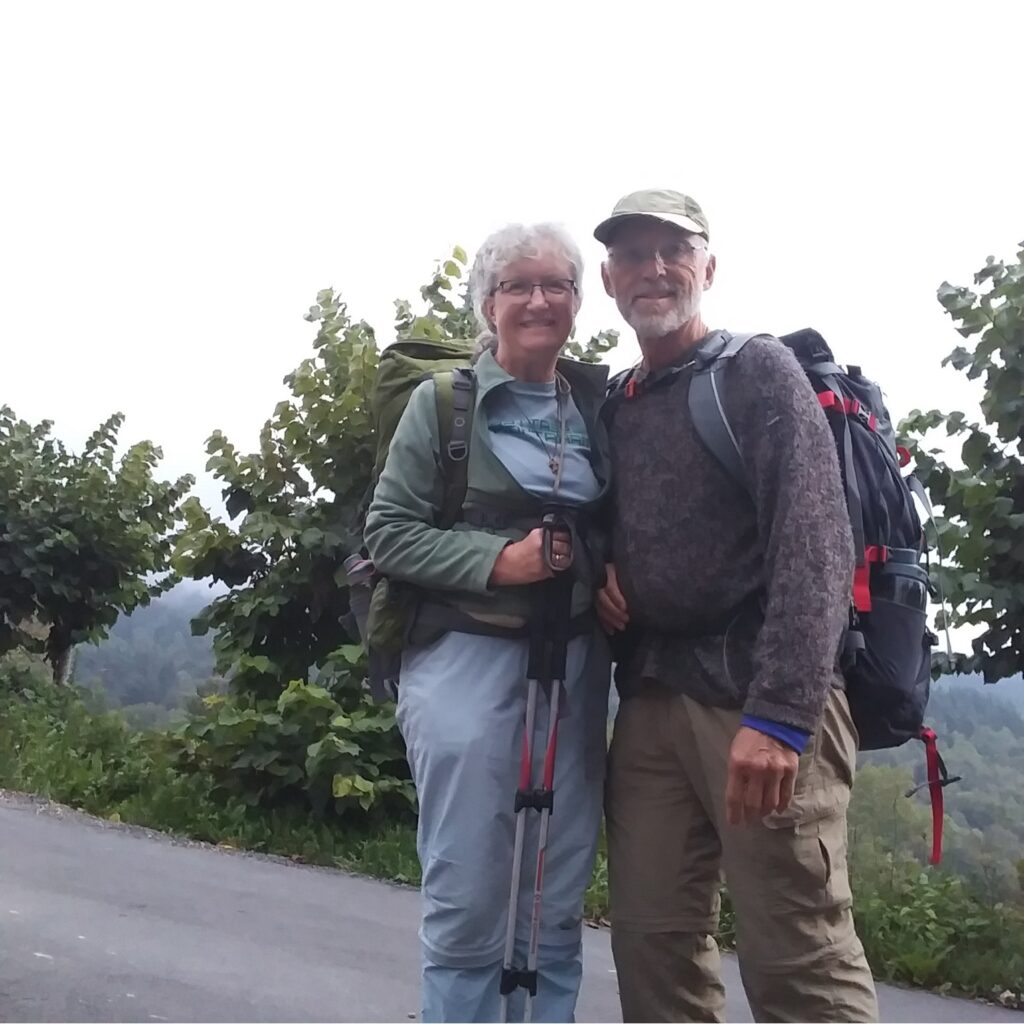
Homespun Homily: Seeing others with the eyes of faith
By Lori Fontana

What a day! In just one day, I feel like I encountered the breadth of humanity: young and old, rich and poor, people of all colors and in so many life circumstances. Let me describe.
The day began with seeing our two grandsons off to school. They are bright, curious boys with long, scruffy hair and skinned knees from soccer games and wrestling with each other in the yard. They are loving and sassy, at times cooperative. at other times, sullen and belligerent. Their lives stretch before them, filled with possibilities.
I then headed to the nursing home where my mom lives. She’s 94 and only recently has needed more care. Six months ago, she spent her days playing Scrabble or Bingo, visiting with other residents, attending prayer in the chapel, and even doing her own laundry. Now, she is pretty much confined to her wheelchair, as her legs have now decided they can’t reliably support her. Though physically declining, she is still gracious and caring to others. As we ate lunch with some other residents, she paused between bites to comment to her neighbor, “You look so nice in that red blouse,” and “Try those mashed potatoes; they’re delicious today.”
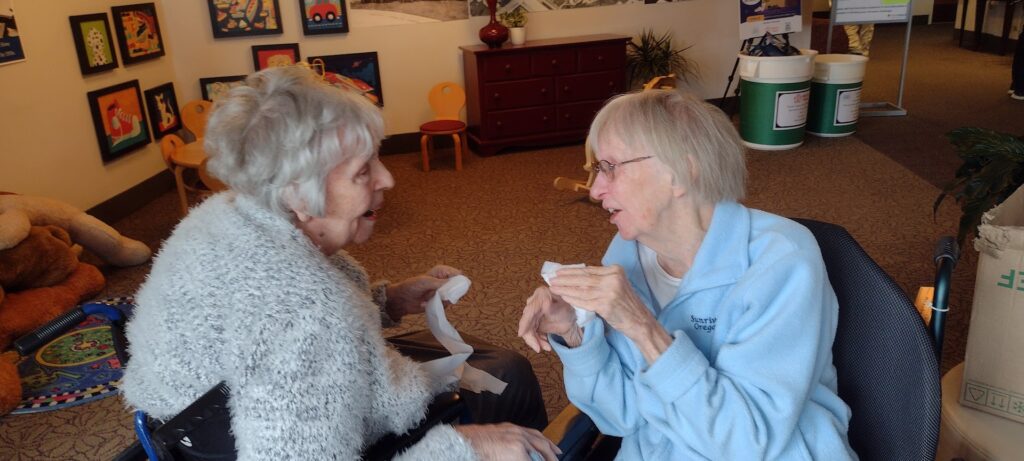
The other residents at her table were not as aware as she is; some don’t speak at all. But my mom spoke to them with gentleness and kindness. She honored them by greeting them, even when they were unable to respond.
During the meal, I noticed the nursing home staff: the busy nurses who distributed medications and charted medical notes; the aides who cheerfully visited with residents, answering questions, handing someone a drink of water, or helping some residents eat their meal. There were the housekeeping staff members – sweeping, mopping, preparing plates of food, washing dishes. Almost to a person, these were people from the four corners of the earth: Eritrea, Somalia, China, the Philippines, Mexico. They worked with a quiet dignity, showing loving respect to all the residents as well as to each other. Even when a resident was sad or agitated, the atmosphere remained peaceful and caring.
After lunch, I wheeled my mom to the first floor where there is a preschool and nursery. From the hallway, we could look into the “toddler room” through floor-to-ceiling windows. We saw little cherubs of all shapes and colors playing dress-up, cuddling with stuffed animals, painting, climbing, twirling, and at times bumping into each other or grabbing a toy. It was messy and joyful with runny noses and squeals and tears. What energy and zest! These young ones brought smiles to my mom and me, as they do to all who behold them.
From my lovely visit with my mom, I caught a city bus home. The bus riders were people of all colors and dress. There was a lovely African American woman seated next to me, looking tired but serene, reading a book, perhaps returning home after a day’s work.
Ahead, at the front of the bus, sat a young couple. Their clothing was disheveled; their hair appeared unwashed and uncombed. They carried large bundles and bags and a bulky box of Pampers. While the young man gazed out the window, the young woman leaned forward, seemingly exhausted and trying to sleep. The bus jostled her back and forth, and I worried that she would tumble into the aisle. But she didn’t. I could imagine that the couple was taking respite on the bus, warming themselves and enjoying a few moments of peace.
Behind me was a middle-aged man who, halfway through the bus ride downtown, began to talk loudly as if having a conversation with someone. Gesturing with his hands and shaking his head, he rummaged through a plastic bag on the floor in front of his seat. His loud behavior indicated some mental suffering or illness.
My initial reaction was fear and anxiety. But then my thoughts turned to an awesome truth. This man is a child of God. Yes, he appears to be suffering or perhaps not quite in his right mind. He needs care, far more than I could give. But he is a child of God.
So too the young couple, trying to get a few moments of peace surrounded by their worldly belongings on a bus – they, too, are children of God. As I thought back over my entire day: my bus companions, exuberant toddlers, the tired elderly folks, my mom, our grandchildren … each is a child of God, God’s beloved.
Life has a way of wearing us down, clouding our true nature. After just a short time of living, we’re not as bright and shiny, carefree and joy-filled as those little two-year-olds. We suffer, we doubt, we fall, we fail, and in the end, we know we will die.

But God wants more for us. God does love each one of us with an unconditional, everlasting love. When I embrace my deepest identity as God’s beloved, then it’s so much easier to open my heart to all my sisters and brothers. I can look beneath life’s tarnish and see that here in the nursing home, here on the bus, here in the nursery, here in my own home, each person is a child of God.
How does that truth make a difference? It means I look upon each person I meet with reverence. I can smile and say hello. In some cases, I’m able to help with a listening ear or directions. In other situations, it may not be wise to approach or speak to the person, but I can look with kindness upon them and say a prayer that they receive the help they need.
One more little story: as I waited at the bus stop that day, a middle-aged woman asked me for money. I replied that I didn’t have cash, but would she like to share my fig cookies? She declined and started to walk away, but then turned back, and we had a short friendly conversation. Rather than drawing back in fear, I had reached out with a humble offer, and we shared a holy moment.
It’s a good reminder: all of us begin life as innocent, pure babies. Then life happens, and we become a bit scuffed and scraped, enduring challenges and disappointments. We are all wounded. But can I rise to the call of our faith? Can I see into the heart of each person and know them as God’s beloved?
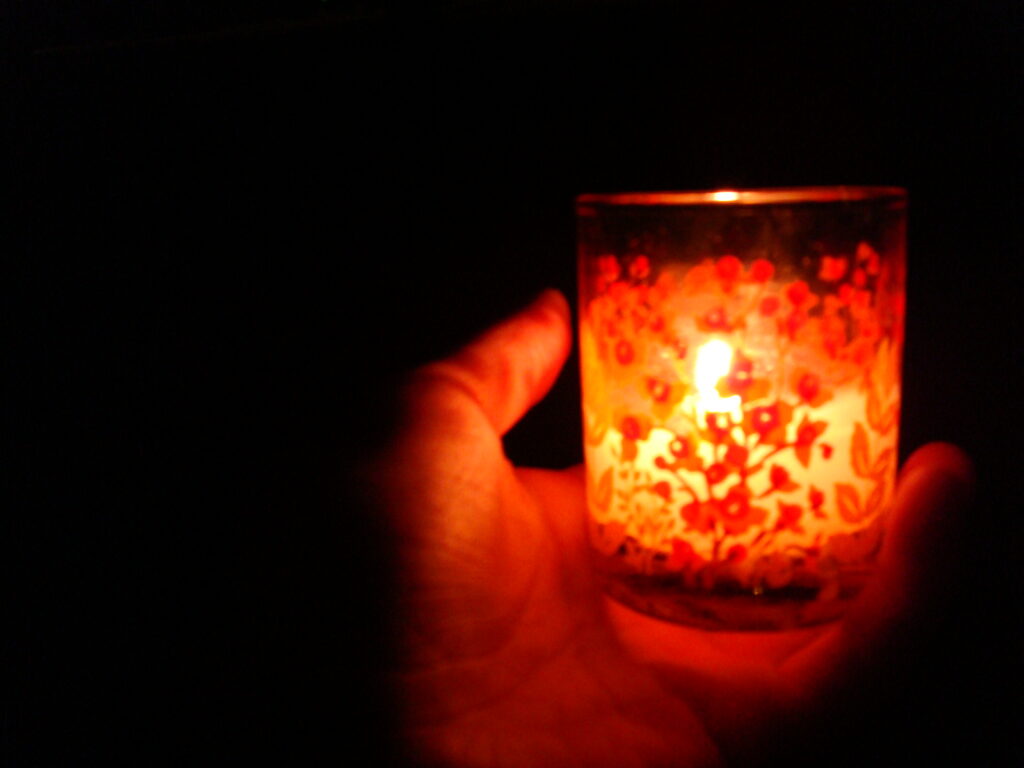
The Month of All Souls and the Altar of Remembrance
By Lori Fontana
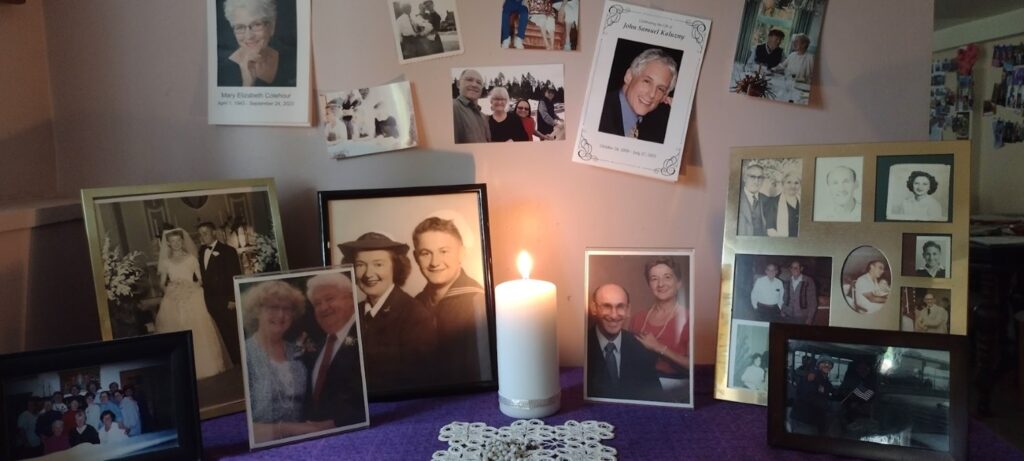
The Feast of All Saints (the feast day for ALL of us) and the Feast of All Souls—remembering our loved ones who have gone before us. Two great feast days of our church which provide the occasion to grieve and remember, to celebrate and honor. Every November, we set up an “All Saints / All Souls” altar in our home.
We gather photos of our family members and friends who have died, both recently and long ago. We display the photos on a tabletop with a nice cloth covering, candles, flowers, and other momentos which remind us of our loved ones. Through our faith, we believe that loved ones who have died are still close to us, in the communion of saints. Our November altar brings them near, reminds us to pray for them, prompts us to honor them, helps us to grieve and let go. Perhaps you can create your own home altar for this prayerful month.
HOPE IN THE RESURRECTION
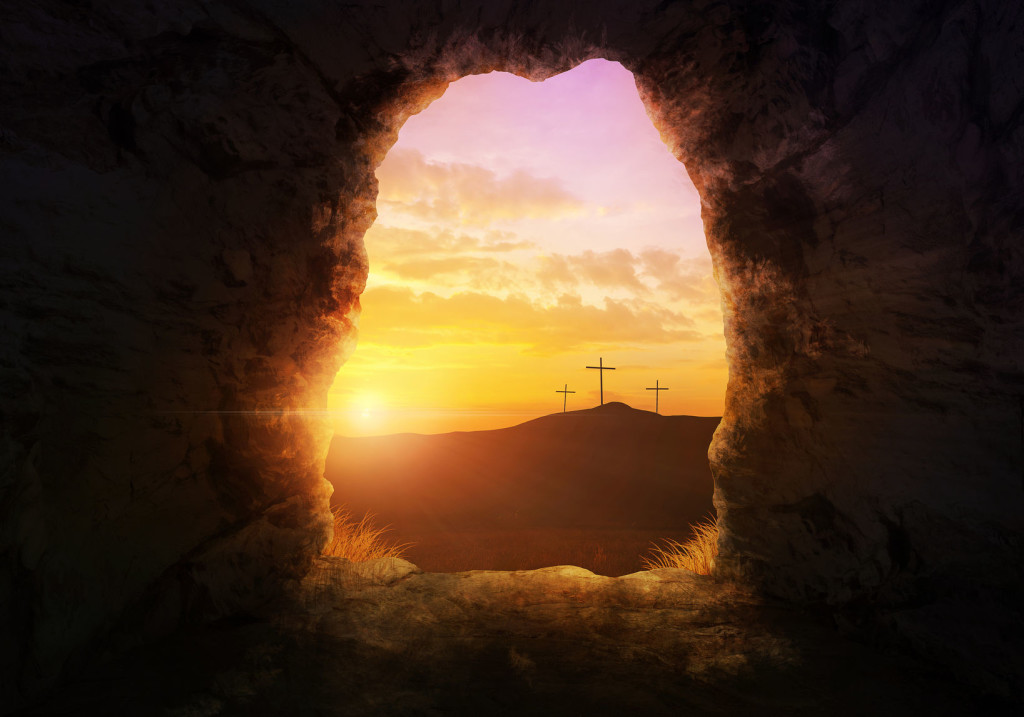
Wisdom 3:1-6 The souls of the righteous are in the hand of God, and no torment shall touch them. They seemed, in the view of the foolish, to be dead; and their passing away was thought an affliction and their going forth from us, utter destruction. But they are in peace. For if to others, indeed, they seem punished yet is their hope full of immortality; Chastised a little, they shall be greatly blessed, because God tried them and found them worthy of himself.
1 Thessalonians 4:13-18 We do not want you to be unaware, brothers and sisters, about those who have fallen asleep, so that you may not grieve like the rest, who have no hope. For if we believe that Jesus died and rose, so too will God, through Jesus, bring with him those who have fallen asleep. Indeed, we tell you this, on the word of the Lord, that we who are alive, who are left until the coming of the Lord,* will surely not precede those who have fallen asleep. For the Lord himself, with a word of command, with the voice of an archangel and with the trumpet of God, will come down from heaven, and the dead in Christ will rise first. Then we who are alive, who are left, will be caught up together* with them in the clouds to meet the Lord in the air. Thus we shall always be with the Lord. Therefore, console one another with these words.
Becoming the perfect Church…Ha! Ha! Ha! There’s no such thing, but…
By Robert Fontana
When I was young (and dumb) and beginning my life in ministry, I was filled with zeal as a Catholic and disciple of Jesus. Zeal led me to do apostolic work at a parish which served a Navajo reservation in New Mexico, and then to the seminary to see if God was calling me to be a priest. After deciding “No” to that question, I joined a Catholic household of students at LSU, hoping to capture the idealism and lifestyle of the first followers of Jesus.

I seemed to be driven by some vague notion that there was a much better way of being church than what my parents’ generation had modeled for me. There must be a way to perfectly imitate Jesus and the saints by willingly renouncing worldly possessions and living in community among the poor and spiritually abandoned. Lori and I were so captivated by this idea that we, with three small children, moved with other families to a poor neighborhood in south Louisiana to create the perfect church.
Guess what happened?
WE FAILED MISERABLY! We argued endlessly over the rules of community life, could never agree on how to integrate children into such a project, rarely shared in fun, and never learned how to resolve conflict. We tried to create the perfect structure for being the perfect disciples of Jesus without first getting to know one another, discovering how different we were from each other, and learning how to simply get along.
That failure taught us a lot – mostly not what to do. But also it opened my eyes to the illusion of trying to be the “perfect church” because there is no such thing. It did not exist when Jesus was walking with his disciples – they continued to argue about which one was the greatest; and one of them ended up betraying Jesus.
The perfect church did not exist following the giving of the Spirit at Pentecost – the widows of the Greek-speaking members were being left out of the distribution of food and services, and there were intense arguments over how to welcome non-Jews into the community.
The perfect church did not happen during early church history: in the fourth century, after Christianity was legalized, there was basically a civil war between Christians who followed Arius and those who were Orthodox or Catholic. Arius was condemned at the Council of Nicea but that did not prevent violence from breaking out between the two sides.

So, if we cannot work to build the perfect church, can we work to build the church to which the Holy Spirit is guiding us? This is the focus of our upcoming retreat scheduled for Saturday, October 26th, with Fr. Dennis Berry, ST, and Sr. Debra Wilson, MSBT (information below).
Perhaps this goal, the church desired by the Holy Spirit, is as elusive as seeking the perfect church. Indeed, how can we discern how the Holy Spirit is guiding God’s people in this particular time of history? This is not an easy task for a church that is global, is situated in a multitude of different languages and cultures, and is rocked by its own internal divisions caused by the clergy sex abuse crisis and tensions between traditionalists, moderates, and progressives.
As we prepare for this retreat, we are mindful of four dimensions of Catholic life that we hold together as we discern how to become the church that the Holy Spirit wants:
1. the New Testament witness of the life and teachings of Jesus and his first followers;
2. the example of the saints;
3. the theology and pastoral direction of the 2nd Vatican Council;
4. the leadership of Pope Francis.

We invite everyone to participate in our retreat weekend, but for those who cannot attend in person, let me ask you the following:
When you consider the tensions within the church and society today, which stories from the life of Jesus and which of his teachings and those of the New Testament writers resonate with you, and why?
When you consider the tensions within the church and society, which examples of the saints resonate with you, and why?
When you consider the tensions within the church and society today, what teachings and pastoral directions of the 2nd Vatican Council (as you understand them) resonate with you, and why?
When you consider the tensions within the church and society today, what from the leadership of Pope Francis resonates with you, and why?
You might take some time for your own retreat and reflect on these questions. I would love to have you write your responses to me (send to Robert@catholiclifeministries.org).
__________________________________________________
If you live in the Pacific Northwest, please join us for this day of prayer and study with two very outstanding presenters. You will not regret the time spent meeting new people, renewing old friendships, praying, learning, sharing in small groups, and concluding with the celebration of the Eucharist.
Place: Assumption Catholic Church, 6201 33rd Ave NE, Seattle, WA 98115. We will conclude with the vigil Mass!
Cost: $30 (single), $50 (couple) Scholarships available.
Please bring your own brown bag lunch. Snacks/drinks will be provided. To register: Email: Robert@catholiclifeministries.org that you wish to participate, and pay the fee at catholiclifeministries.org/donate/ OR bring a check to the retreat, payable to CLM.
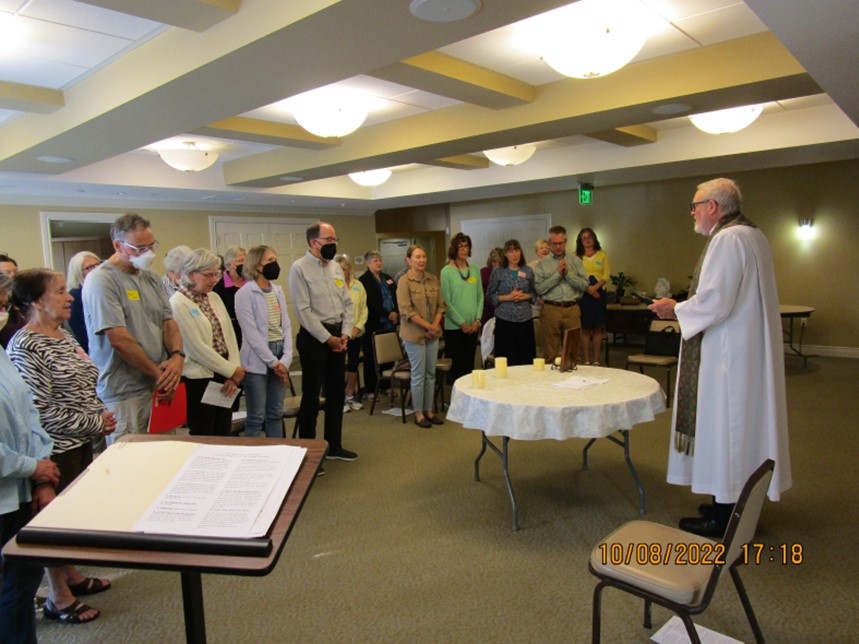
Homespun Homily: We don’t choose how we’re going to die but we can choose how we’re going to live!
By Lori Fontana
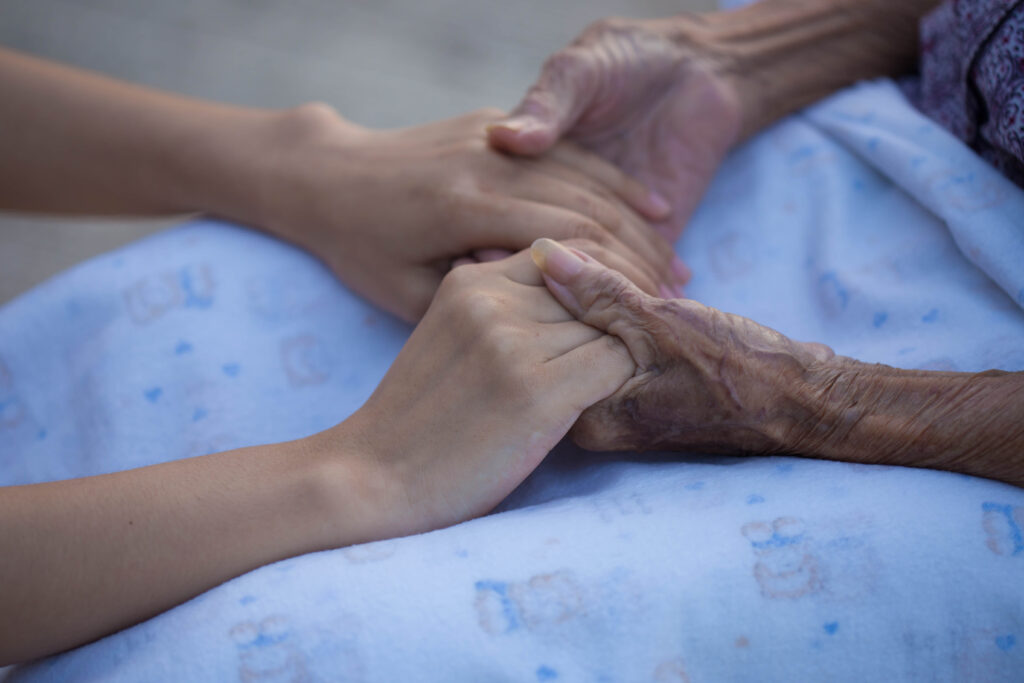
We don’t think it’s gonna happen to us. Mostly, I think we try to not think of IT at all. Aging. Dying. But it’s happening to each one of us. Right now. With every breath, every step, we’re growing older; we’re closer to our death.
This has become a daily reflection for me over the past year, even more so in the past few months. In 2023 – 2024, a dozen of our friends, people very close to us in our life circle, have died. Some had lived long fruitful lives. Others died too soon. Death came from illness or accidents; a few died from old age.
Very recently, a family member’s health has declined rapidly, and I’ve helped to care for her. It’s a beautiful task, humbling…and hard! From being quite independent 6 months ago, she now pretty much needs constant care – physical help for daily activities and compassionate reassurance throughout the day.
For several days, I tried to manage her care in my home and very quickly realized that I don’t have the strength, skills, or adequately safe environment for that. But her time with us in our home was so precious. We shared laughter, memories, family stories. We put our heads together to do the newspaper’s daily “Word Jumble.” We watched awe-inspiring and silly animal videos on YouTube – baby seals and brightly colored birds doing their mating dances. We went for short walks, I pushing her wheelchair, to see the fall colors and the rainbow of dahlias still in bloom.
Sometimes there was confusion: “Where am I?” “Why don’t my legs work anymore?” “Why am I so sleepy?” And, “God, why am I still here, on earth?”

These are questions we may all have as we age, if and when we stop to reflect on the reality that we will all die. This is a hard truth, but it’s not bad. It’s the circle of life, and it’s part of God’s plan which leads us to eternal life. Oh, we can choose to face death with fear and resistance or even complete denial. OR we can live our lives and face our death with thanksgiving and perseverance. As my loved one pointed out one morning, “We Christians don’t choose how we’re going to die… but we can choose how we will live each day.” And she so graciously does choose kindness and love each day and shares this with others.
For me, it boils down to two actions of the will – gratitude and trust. What can I thank God for today? Large blessings – I live in a safe, prosperous country (with problems, yes, but a good place overall); I have an abundance and variety of good food; I have a warm bed at night; I have loving family and friends. The list is long. And then there are small graces – morning coffee with cream; the hummingbird outside my window; the laughter of grandchildren; a good-night kiss from my beloved.
There now is science that proves that a grateful heart contributes to overall happiness and well-being, and even longer life! It’s not hard to foster the habit of gratitude. Try making a “Gratitude List,” and add to it every day. Or give thanks to God each evening before you sleep – tell God what you are grateful for from the day just lived.
The other habit I’m working at is TRUST. I think it’s a matter of asking, “Do I believe in God or not?” God promises to be always with us (Joshua 1:9); to supply our needs (Philippians 4:19); to give us good gifts (Luke 11: 9-13) and the desires of our hearts (Psalm 37:3-4); to bring good from our trials (Romans 8:28); to not try us beyond our abilities (1 Cor 10:13). Can we act out of these promises, through times both good and difficult?

Where are we headed? What is our future? I think these are worthy reflections for us at any age. If we’re realistic and honest, these questions can guide our living, day-to-day. God doesn’t promise to take away all difficulties and challenges. But God does promises love and grace and to be with us through it all. That can make all the difference. When we trust God’s love and presence, we can have a grateful heart every day of our lives.
